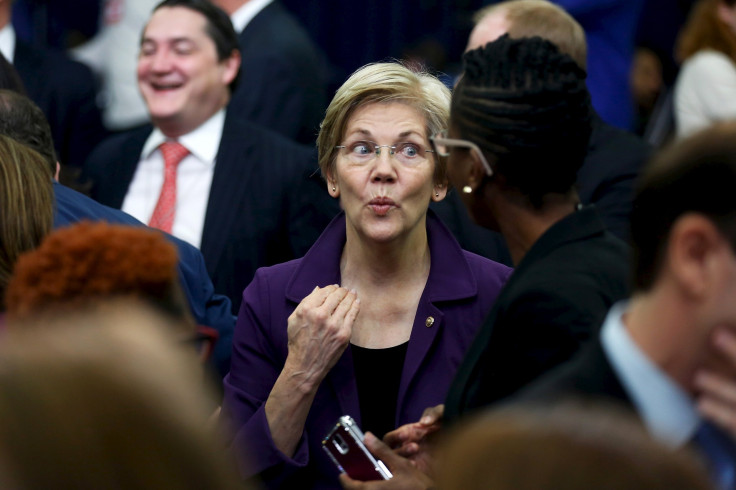Elizabeth Warren New York Times Op-Ed To Voters: Choose Candidate Who Can Wield Executive Power, Not Just Legislative Agenda

Sen. Elizabeth Warren is urging voters to consider how well presidential candidates might be able to work without Congress and whether they would like to see the next occupant of the White House expand on what President Barack Obama has done through executive action. The president has the power to direct federal agencies to vigorously enforce certain laws with or without the support of lawmakers, she wrote in a Friday New York Times op-ed, and that, she said, should be an important consideration.
Legislative priorities matter, but voters need to ask themselves who will shoulder that executive power best, she argued just days before the Iowa caucuses Monday, when Democratic voters will begin choosing among Vermont Sen. Bernie Sanders, former Secretary of State Hillary Clinton and former Maryland Gov. Martin O'Malley.
In the op-ed, Warren — a champion of banking and financial reforms in Congress — wrote that Obama has fallen short when it comes to enforcing existing law, even if he has made substantial progress on a number of issues, such as protecting retirement savings; expanding overtime pay; lesbian, gay, bisexual and transgender rights; and addressing climate change. Enforcing existing federal laws that aim to punish corporations for wrongdoing, she wrote, gets little attention.
“Enforcement isn’t about big government or small government. It’s about whether government works and who it works for,” Warren wrote. “Last year, five of the world’s biggest banks, including JPMorgan Chase, pleaded guilty to criminal charges that they rigged the price of billions of dollars' worth of foreign currencies. No corporation can break the law unless people in that corporation also broke the law, but no one from any of those banks has been charged.”
The op-ed was released alongside a 12-page booklet composed by her office, “Rigged Justice: How Weak Enforcement Let Corporate Offenders Off Easy,” that documents 20 civil and criminal cases that in her opinion lacked adequate accountability. Those cases include the foreign-currency case as well as others, including the alleged yearslong General Motors cover-up for an ignition switch defect that reportedly led to 124 deaths and 275 injuries, the BP Deepwater Horizon oil spill and others.
Warren’s call to consider the executive authority of the president comes at a key moment in the nominating season. Recently, Clinton supporters and others have increasingly attacked Sanders for his legislative priorities, which they see as unrealistic given the current Congress. Warren’s focus on executive action could be read as a rebuke to that whole notion. After all, President Obama has increasingly relied on executive action in the latter portion of his presidency.
© Copyright IBTimes 2024. All rights reserved.





















